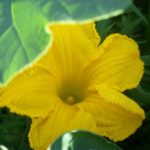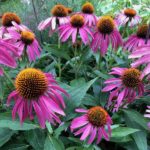Pruning the Honey Locust Tree
The winter-sleeping honey locust in my front yard is barren. In the summer the tree is green, full, and beautiful with graceful feathery leaves. In the fall it turns golden with long flat seed pods. Winter, as with most deciduous trees, has it looking a little like a skeleton and it seems even more so since pruning.
The honey locust is a great tree for the city and especially Denver. It tolerates wide temperature swings, wind storms, ice, salt, pollution, and compacted soil. Because the leaves are feathery, it has even withstood some damage from hail. All of this resilience makes it a perfect tree for front yards close to the street. However, even perfect trees need to be pruned.
The obvious goal of pruning is to cut off dead branches so they don’t fall on someone’s head. We also remove diseased branches so the rest of a tree is not affected. But pruning is much more than that. When excess branches are eliminated, the energy and nourishment of the tree can focus on the remaining branches, increasing their strength. The root system expands and the tree is healthier. Cutting away unnecessary branches also exposes the leaves to more air and light, increasing photosynthesis and preventing disease. Pruning helps trees stay healthy.
Pruning for Humans
The Honey Locust has me thinking about the benefits of pruning as it applies to humans…and that is the mindfulness focus for the week. The idea is to simply pay attention to all the energies, people, and things in our lives that we might consider letting go of. It doesn’t have to be for negative reasons. As with a tree, sometimes there are just too many “branches” demanding out energy. We can be thoughtful about where we actually want to direct our energy, rather than going along out of habit or because of someone else’s intentions. This week we can contemplate what is no longer serving us, and what would be best to release.

For more information on mindfulness focus words click here.
Information on the Honey Locust (Gleditsia triacanthos)


